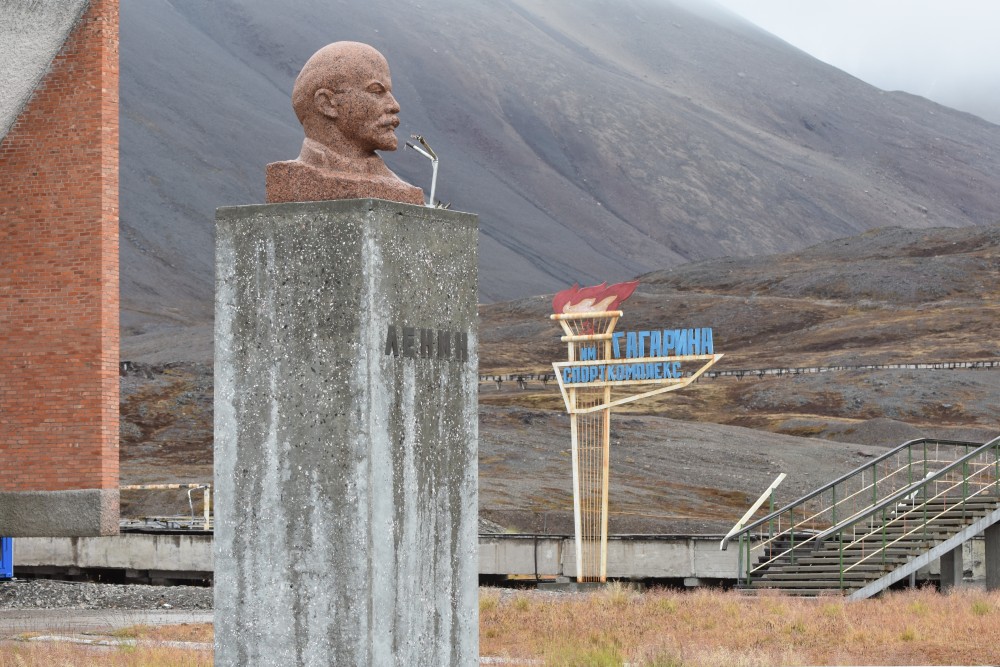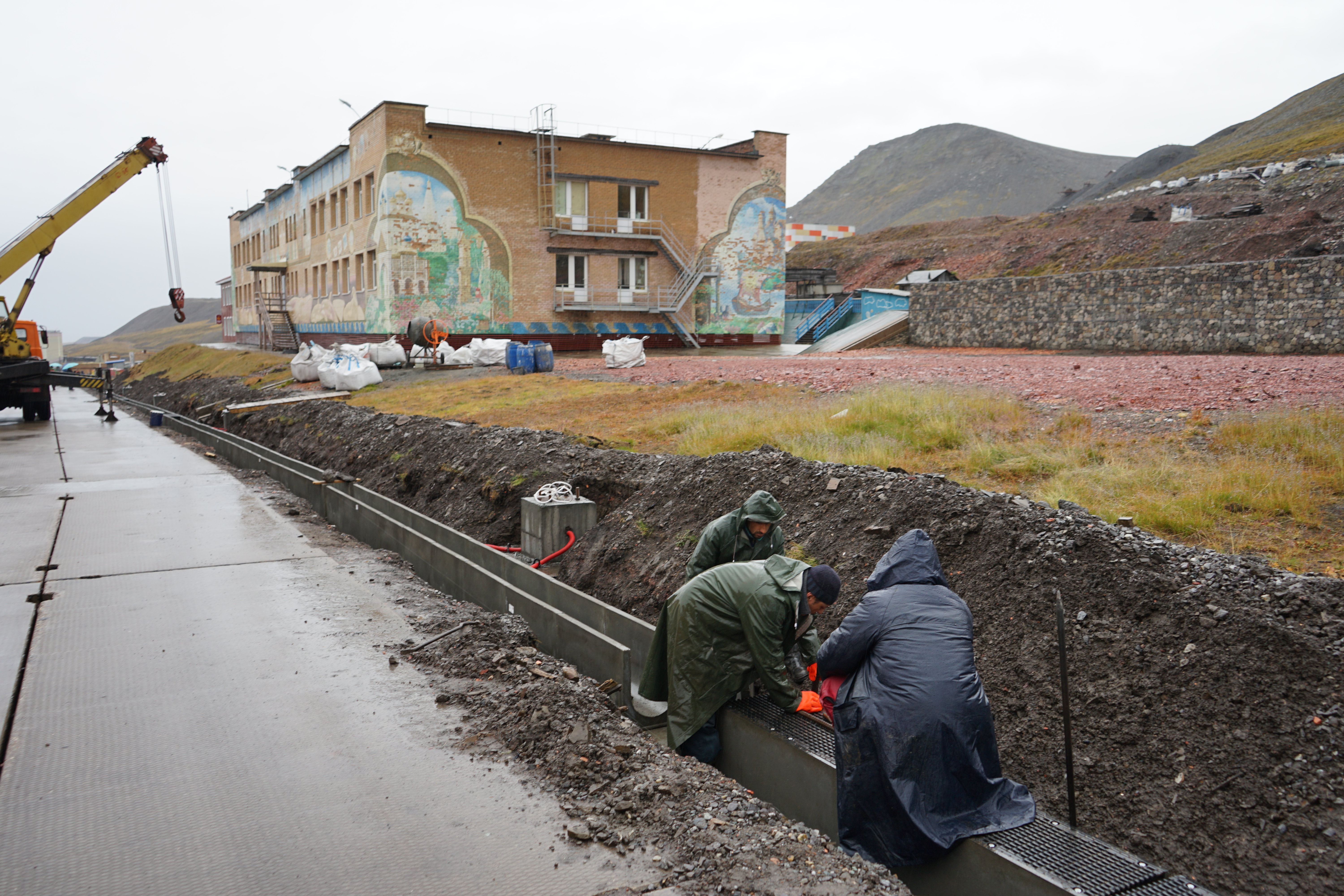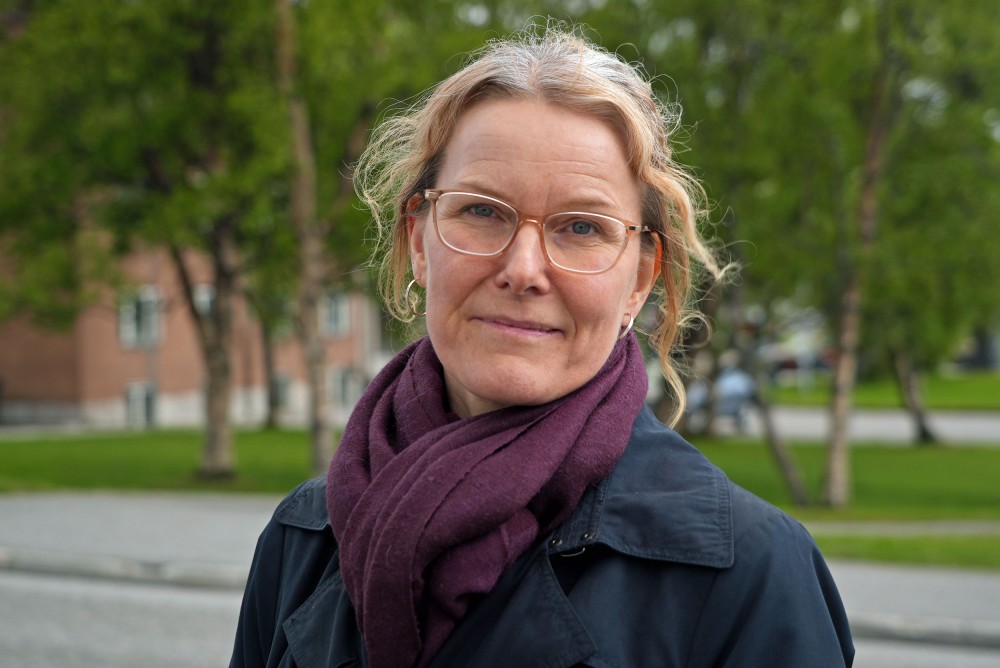Concerns emerge over Moscow’s push for expanded research at Svalbard

New plans challenges Norway’s research limitations by introducing studies on topics like cultural history, paleography and ethno-humanities. “An intense promotion of Russian historical presence on Svalbard,” says professor Kari Aga Myklebost with UiT The Arctic University of Norway.
These plans are now elaborated in a series of articles in the re-born journal Russki Vestnik Spitsbergen and in conferences at universities and other arenas. In short, the new plans include:
- Main science centre will be in Pyramiden, with departments to be established in Grumant, Coles Bay and Barentsburg.
- Both field-research and practical studies for students in summer and winter.
- Studies include ethno-humanities, cultural-historical, paleography and medical biology.
- A consortium of research- and educational institutions and organizations from friendly states will be created.
- China, but also other BRICS+ members can team up, including the new that were invited in January 2024, like the authoritarian petro-states Saudi-Arabia, Iran and United Arab Emirates (UAE).
These fields of research contradict Norway’s informal guidelines for international actors’ science at Svalbard, limited to natural science; climate changes, cosmos, geology, glaciology, marine biology and likewise.
Russia’s plans are put on the table ahead of a new White Paper by the Norwegian Government on Svalbard policies to be presented to the Parliament later this spring. Relations to Russia, a signatory to the 1920 Svalbard Treaty, are of growing concerns to Oslo.
Meanwhile, Trust Arktikugol, the state-owned company running all Moscow’s operations at Svalbard, is pushing a historical narrative about Pomor settlers in the Arctic archipelago and the pride of Soviet-era mining.
The 100th anniversary of Barentsburg, Russia’s main town on the archipelago, was marked this March with conferences in Arkhangelsk, Murmansk, St. Petersburg and Moscow.
Several of the institutions that participated in the 100th anniversary event in Barentsburg are partners to Russia’s new science centre, including the Murmansk Marine Biological Institute (MMBI), a partner to China’s Polar Institute.
The new Sino-Russian alliance appearing at Svalbard marks a shift for Russia’s Arctic science.
“In 2022, cooperation with unfriendly countries stopped, although before that it was actively developing. Now the vector has turned to the East, we are developing cooperation with our Chinese colleagues,” said Denis Moiseev, Deputy Director for science with the Murmansk Marine Biological Institute, interviewed by Komsomolskaya Pravda.
“Last year we signed an agreement with the Polar Research Institute of China to work in the Arctic, including Svalbard. We are discussing the participation of Chinese scientists in our expeditions, and ours in theirs. Also, the government commission on Spitsbergen [Russian name for Svalbard] approved the creation of the BRICS scientific center on the archipelago,” Moiseev said.
Focus on history
The March 17th conference about Barentsburg in Murmansk was entitled “Cultural and historical heritage of the Arctic.”
“This intense promotion of Russian historical presence on Svalbard – through lectures, documentaries, exhibitions, historical street signs – is a continuation of what we have seen over the last two years, with the raising of a Russian-Orthodox cross in Pyramiden and Navy Day Parades,” says Kari Aga Myklebost, a professor in Russian studies and history with UiT The Arctic University of Norway.
With the full-scale invasion of Ukraine in 2022, Trust Arktikugol and Russia’s Consulate General in Barentsburg have even introduced their own military-stylish May 9 parades.
Russian treasure chest
Professor Myklebost says this strategy is primarily directed at the Russian home audience, presenting a narrative of Svalbard as a treasure chest of Russian cultural heritage and Soviet nostalgia.
“It should all be read as part of a strategy to bolster Russian presence on Svalbard today by mobilizing the Soviet and Russian past, using historical narratives to engage the Russian public and invite to Svalbard,” Kari Aga Myklebost says.
Developing a new scientific centre, she says, is presented as a continuation of the otechestvennaya nauka, Russian research, and will be populated by representatives from so-called “friendly states.”
Norway is no longer on Russia’s list of cooperative partners. Last fall, Oslo was even downgraded from “unfriendly” to “very unfriendly” by the Russian Foreign Ministry.
Among Trust Arktikugol’s new key educational partners since January 2024 are Moscow State University for the Humanities and Moscow State Institute of International Relations (MGIMO). The latter is teaching the lion’s share of Russia’s diplomats and is a main propagandist for Putin’s empire story-telling.
“In today’s new geopolitical environment, with Russia engaged in what Moscow terms as an existential war with the collective West in Ukraine, fueling enemy perceptions in the home audience is key to the Kremlin,” explains professor Myklebost.
She sees a clear trend that Russia aims at undermining Norway’s standing at Svalbard.
“As the strategic importance of Svalbard to Russia is growing, there is reason to believe that an enhanced Russian presence will increasingly be used to criticize Norwegian jurisdiction and portray Norway as unfair and anti-Russian, thus attempting to undermine Norway’s standing, both in the eyes of the Russian public and internationally.”
Myklebost, though, underlines that greater part of what Trust Arktikugol does are well within the boundaries of legitimate and benign activities.
“Still, some of them are openly probing the limits of Norway’s jurisdiction,” she says.

Moscow’s hybrid-strategy
Polar geopolitics expert Elizabeth Buchanan warned against Moscow’s hybrid-strategy at Svalbard already before the outbreak of the full-scale war against Ukraine.
“We should expect more sabre-rattling,” Buchanan said in 2021, but emphasized: “Russia isn’t about to annex Svalbard, Russia doesn’t want such fight.”
Today, she says to the Barents Observer that Svalbard’s role as a Arctic flashpoint is increasing as the strategic environment shifts and tensions are rising.
“Russia has maintained a strategic interest in Svalbard remaining as per the status quo arrangement of the past decades – this ensures certainty and predictability for Moscow which is of upmost importance given the geographical proximity of Svalbard to the heart of Russia’s nuclear deterrent precinct, the submarine bases at the Kola Peninsula,” Buchanan explains.
“Keeping Svalbard demilitarized in the intent of the Svalbard Treaty is a principle strategic aim for Russia.” A second principle, she says, is “ensuring free and fair access to Svalbard for Russians.”

Elizabeth Buchanan works with the Australian Strategic Policy Institute and is author of the book Red Arctic – Russian Strategy under Putin.
Ensuring Russians access to Svalbard is, according to Buchanan, appearing to attract more recent focus from the Kremlin.
“Maintaining an enduring presence, indeed bolstering Russian presence on Svalbard in recent years, is an asymmetrical security challenge for Norway.”
She says what we now see “is a Russia working the Svalbard Treaty and its provisions in a manner of ‘law fare’ of sorts to legitimize its stake, and presence, at Svalbard.”
Buchanan says the picture is complicated by the fact that China has also bolstered its footprint, in permissible manners per the Treaty, at Svalbard.
“With both Russia and China working the Treaty to maintain presence, and look to ways to bolster activities beneath the coercive lines of breaching the Treaty, Norway has a wicked problem to grapple with.”
In 2018, when Norway’s new research strategy for Svalbard was up for review, China expressed a desire to conduct social science at Svalbard, but the Norwegians said no. With Russia’s new initiative, that request could come up again as a joint Russian-Chinese initiative.
Like Russia, also Beijing has signed the Svalbard Treaty.
Tourism on “must-watch” list
Elizabeth Buchanan points to Russia’s recent announcement of unilateral tourism programs to be something to watch closely.
“It has a potential to be used to ‘re-populate’ Svalbard outposts from the Soviet-era. This is linked to a broader development involving Moscow’s legislated signal that it will fight to ‘defend’ Russian nationals wherever the world may host them.”
As recently reported by the Barents Observer, Russia aims at starting direct voyages with tourists from Murmansk to Barentsburg.
Located in Kirkenes, Norway, just a few kilometres from the borders to Russia and Finland, the Barents Observer is dedicated to cross-border journalism in Scandinavia, Russia and the wider Arctic.
As a non-profit stock company that is fully owned by its reporters, its editorial decisions are free of regional, national or private-sector influence. It has been a partner to ABJ and its predecessors since 2016.
